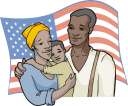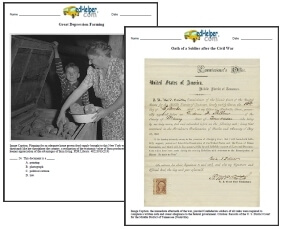
Worksheets and No Prep Teaching Resources
Reading Comprehension Worksheets
Black History and Blacks in U.S. History
Colonial America (1492-1776)

Black History and Blacks in U.S. History
| edHelper's suggested reading level: | grades 4 to 5 | |
| Flesch-Kincaid grade level: | 5.37 |
|
Fugitive Slave Laws
By Jane Runyon |

|
 |
Create Weekly Reading Books
Prepare for an entire week at once! |
| Leave your feedback on Fugitive Slave Laws (use this link if you found an error in the story) |
 |
Black History and Blacks in U.S. History
|
 |
Colonial America (1492-1776)
|
 |
United States
|
|
|
 | Fifty States Theme Unit |
 |
Document Based Activities |